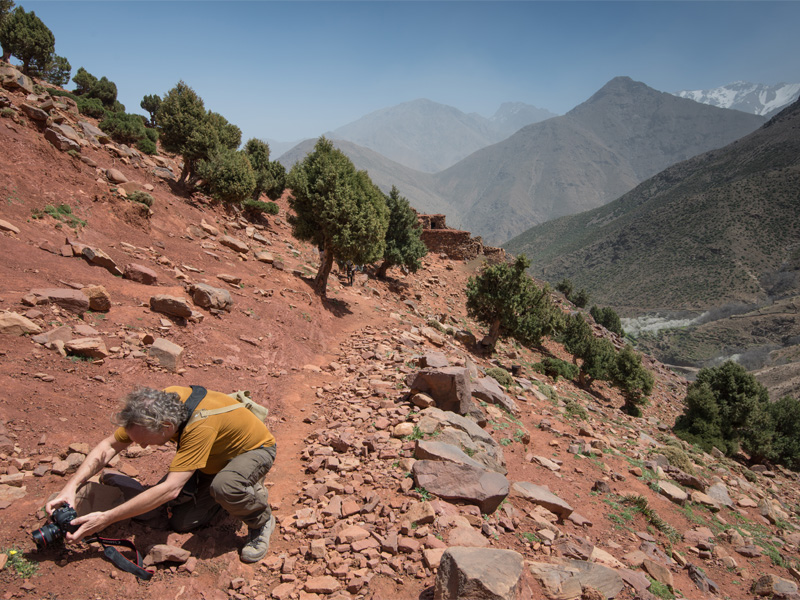Introduction
Overview of Trekking in the Atlas Mountains
The Morocco Atlas Mountains sit nicely between the Atlantic and Sahara. These majestic peaks boast amazing views diverse landscapes and a vibrant culture. Whether it’s climbing high peaks like Mount Toubkal or wandering through lush valleys and charming Berber villages you’ll find a hiker’s dream here.
Why Trekking in the Atlas Mountains Matters
Hiking in the Morocco Atlas Mountains is more than just a trip; it’s a full-on experience. Here’s why you’ve got to try it:
- Challenge: Test yourself on different terrains.
- Connection: Get closer to nature and escape the city buzz.
- Culture: Meet local Berber people and learn about their rich traditions.
So lace up those hiking boots and discover all the hidden gems these mountains have to offer!
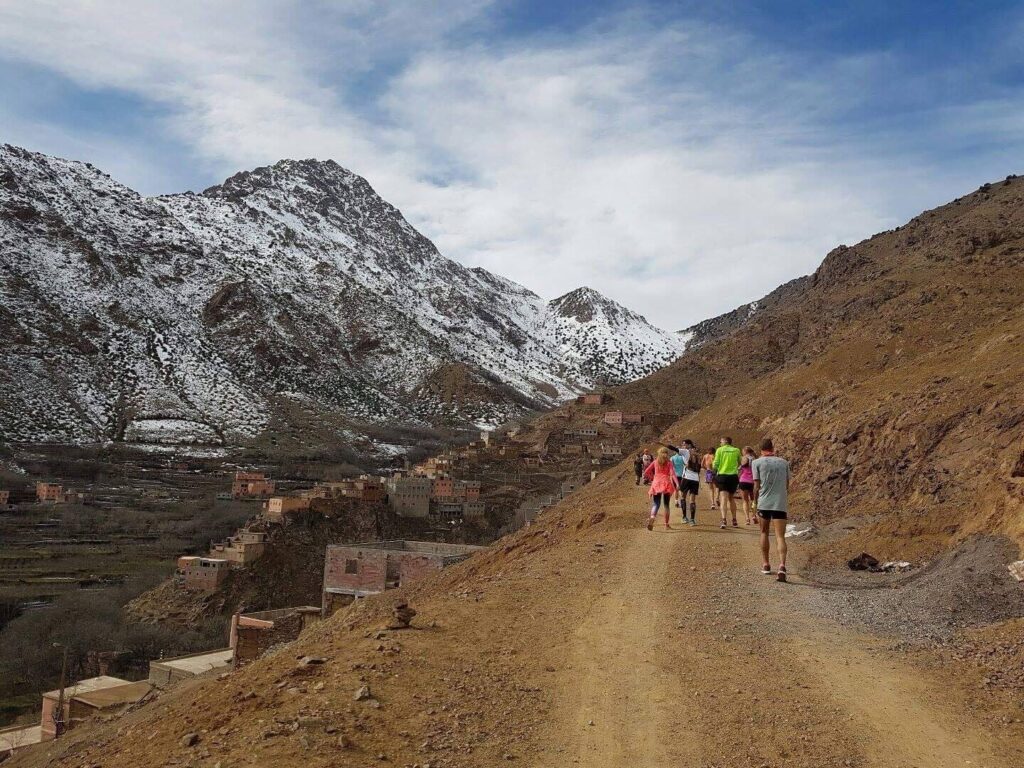
Getting Ready for Your Trek
What You’ll Need
Before you head out on your hiking adventure in the Atlas Mountains make sure you’ve got the right gear. Here’s a quick checklist:
- Footwear: Get solid waterproof hiking boots that offer good grip.
- Clothing: Layer up to handle changing temperatures. Go for moisture-wicking fabrics.
- Backpack: A lightweight pack should have enough space for your must-haves.
- Navigation Tools: A map, compass or GPS is great for staying on course.
- Hydration: Bring a reusable water bottle or hydration pack to keep you refreshed.
Getting Fit for Trekking
Your fitness level can really shape how much you enjoy the trek. Here are some ways to prep:
- Cardio Workouts: Things like running or biking are great for building stamina.
- Strength Training: Work on your legs core and back to help with endurance.
- Hiking Practice: Start with shorter trails to get your body used to hiking.
By preparing well you’re not just ensuring success but also getting ready for an exciting and memorable adventure!
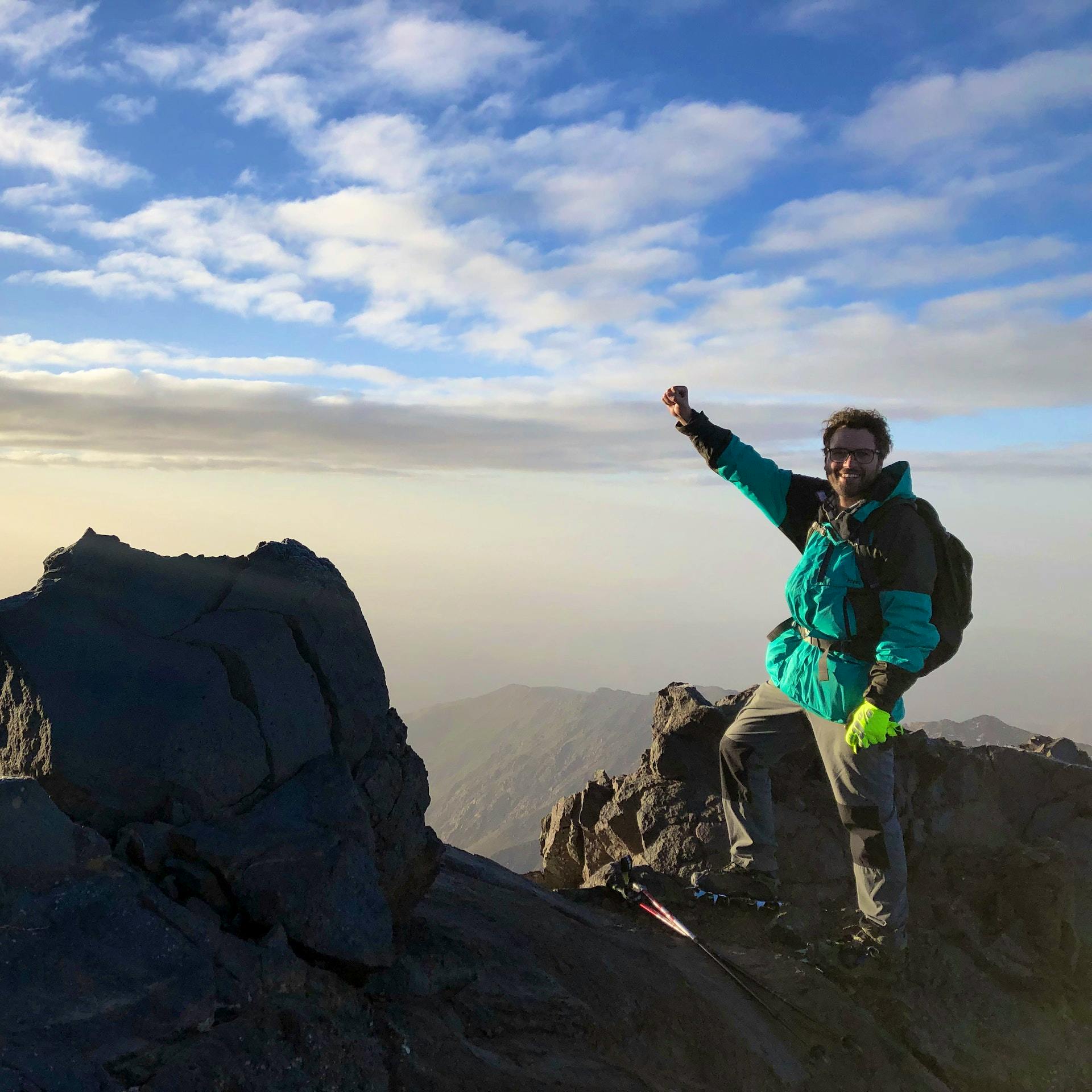
Top Trekking Routes
Toubkal Ascent
One of the must-do treks in the Morocco Atlas Mountains is the Toubkal Ascent. At 4,167 meters it’s North Africa’s highest peak. This trek takes about two days and rewards you with amazing views and some thrilling challenges. With rocky paths and stunning backdrops it’s a great choice for those craving some excitement.
- Highlights: Breathtaking panoramic views at the summit.
- Preparation: Make sure you’re acclimatized and fit for the altitude.
Mgoun Massif Trek
Another fantastic option is the Mgoun Massif Trek, showcasing the area’s natural beauty. It’s quieter than Toubkal letting trekkers lose themselves in peaceful landscapes.
- Distance: About 80 kilometers often done in six days.
- Attractions: Unique rock formations Berber villages, and lush valleys.
These routes offer fantastic experiences for anyone who loves trekking in the Atlas Mountains!
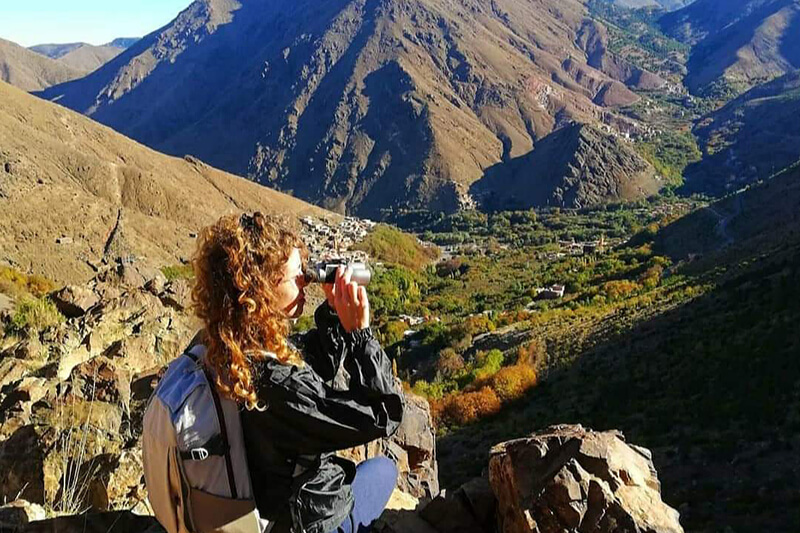
Cultural Experiences
Engaging with Berber Communities
Hiking in the Morocco Atlas Mountains isn’t just about the views. You’ll get a real chance to dive into the local culture by connecting with the welcoming Berber communities. You might share stories over a warm cup of mint tea learn about their amazing crafts or even join in on some local music and dance.
- Cultural Exchange: Berbers are famous for their hospitality and often invite trekkers into their homes.
- Local Insights: Learn about their customs traditions and the landscapes that shape their lives.
Traditional Food and Places to Stay
Don’t miss out on traditional Berber food while you’re there. Picture hearty tagines packed with local flavors served with fresh bread—it’s a treat after hiking all day!
- Accommodations: Enjoy cozy guesthouses or charming gîtes that showcase local architecture.
- Dining Experience: Savor meals made with fresh ingredients that reflect the rich culinary traditions.
Embracing these cultural experiences adds a whole new layer to your hike and deepens your appreciation for Berber heritage!
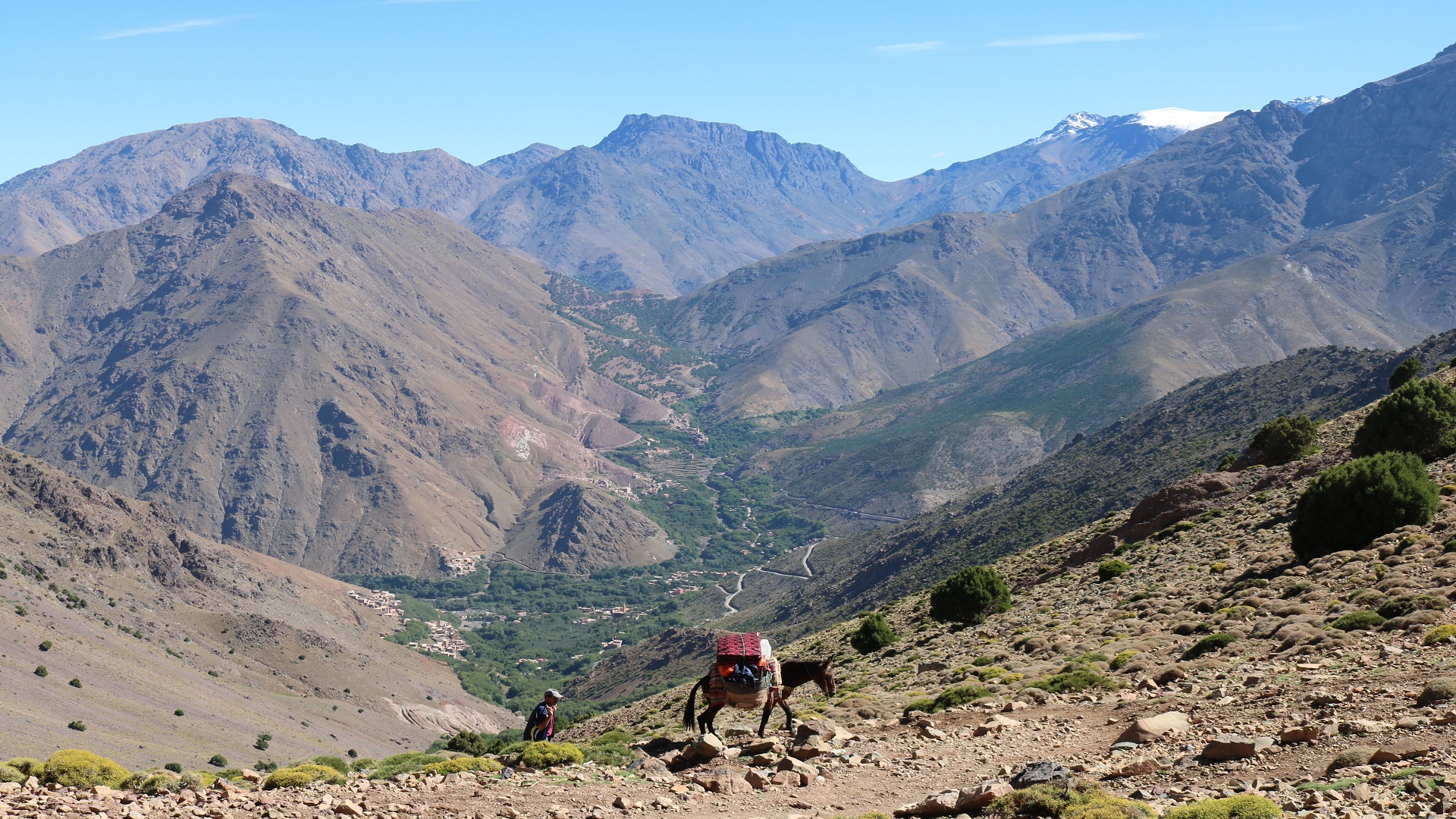
Safety Tips and Guidelines
Keep an Eye on the Weather
When you’re trekking in the Atlas Mountains knowing what the weather’s like is key for a safe experience. The weather can change quickly so always be ready.
- Layering: Dress in layers to adjust to temperature swings.
- Check Forecasts: Use reliable weather apps or local sources for the latest updates.
- Hydration: Drink more water on hot days to avoid dehydration.
Emergency Preparedness and First Aid
Accidents happen so it’s important to know what to do in an emergency. Carry a well-stocked first aid kit and familiarize yourself with basic first aid skills. Here’s what you should include:
- Communication: Make sure you can contact help with a phone or a signal mirror.
- First Aid Kit Essentials: Include bandages antiseptic wipes pain relievers and blister pads.
Being aware of the weather and ready for emergencies lets you enjoy the beauty around you!

Being Mindful of the Environment
Leave No Trace Principles
As you crack on with your hiking trip in the Atlas Mountains keeping the Leave No Trace tips in mind is vital to help maintain this beautiful spot. Here’s how to reduce your impact:
- Plan Ahead: Do your research on trails and conditions beforehand so you stay on track.
- Pack It In Pack It Out: Make sure you take all your trash food scraps and belongings with you.
- Stay on Trails: Protect delicate areas by sticking to marked paths.
Respect Wildlife and Plants
Your trekking journey involves being responsible for the wildlife and plants you see. Keep local habitats safe by following these guidelines:
- Observe from a Distance: Don’t disturb wildlife or plants; try using binoculars for a closer look.
- Abide by Regulations: Follow local wildlife protection rules and avoid picking plants.
By practicing environmental awareness you’re helping to make sure future generations can enjoy the stunning Atlas Mountains!
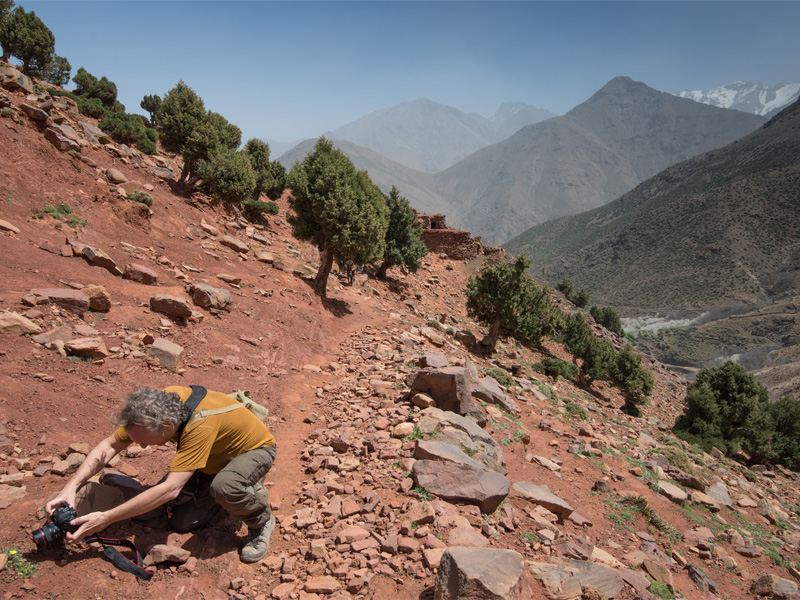
Seasonal Tips
Best Time to Trek
Picking the right season for trekking in the Atlas Mountains can make a big difference to your experience. The ideal times to set out are spring (March to May) and fall (September to October).
- Spring: Check out colorful wildflowers and enjoy milder weather.
- Fall: Experience gorgeous fall colors and fewer tourists.
Both seasons provide great conditions for hiking and let you soak in the beauty of the mountains.
Weather and Climate
Getting to know the climate is super important while planning your trek. Here’s what to expect:
- Summer (June to August): Expect warm days but chilly nights at higher altitudes.
- Winter (November to February): Cold and snowy trails will often need special gear.
Keep these seasonal tips in mind for a more enjoyable trekking experience!
Booking Tours and Guides
Finding a Good Tour Operator
When you plan your trek in the Atlas Mountains it’s crucial to find a reputable tour operator. Look for ones that:
- Have Great Reviews: Check travel sites and forums for feedback from other trekkers.
- Be Transparent: Look for clear information about itineraries safety and costs.
- Support Locals: Choose companies that focus on sustainable tourism and help local communities.
Advantages of Local Guides
Having a local guide can take your hiking experience to another level. Here’s why:
- Expert Knowledge: Local guides can offer amazing insights into the area’s terrain plants and animals.
- Cultural Connections: They help you connect with local customs and communities which augments your journey.
- Safety: Experienced guides know the trails and can help with any issues that pop up.
By going with trusted tour operators and local guides you’re setting yourself up for an amazing adventure filled with local culture and expertise!
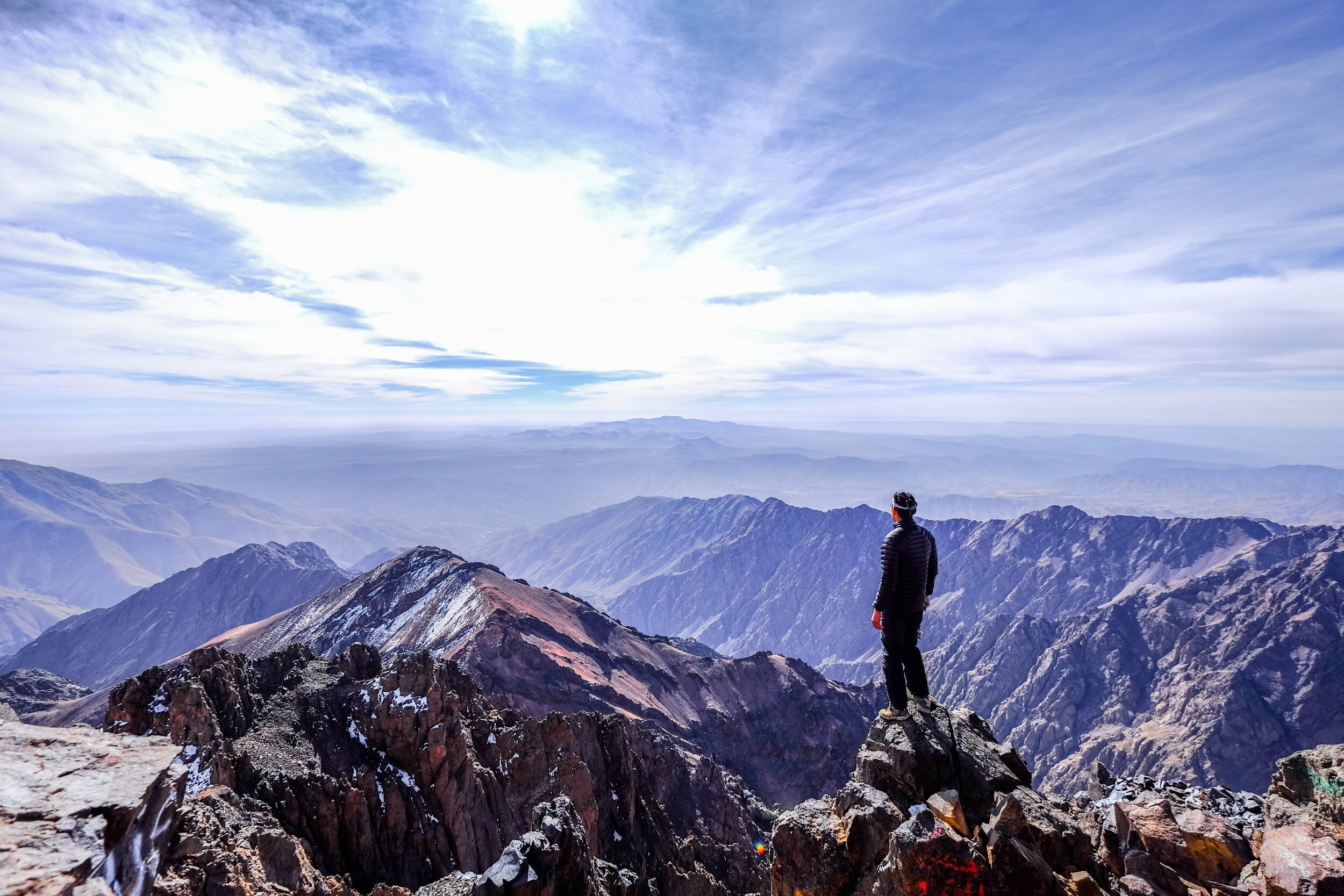
Wrapping Up
Highlights of Your Trekking Journey
As we finish up our look at trekking in the Morocco Atlas Mountains it’s easy to see why so many adventurers are drawn here. From climbing Toubkal’s heights to the tranquil beauty of the Mgoun Massif there’s something for every trekker. Connecting with Berber people enjoying traditional dishes and soaking up the beautiful landscapes are unforgettable moments that’ll stick with you long after the trek.
A Call to Explore
So I invite you to jump in and explore the Atlas Mountains yourself! Your adventure is waiting with amazing views and rich culture. Pack your bag lace up those hiking boots and let the mountains spark your wandering spirit. You won’t regret it!
FAQs about Trekking in the Morocco Atlas Mountains
1. When’s the best time to trek in the Atlas Mountains?
The best times to hit the trails are from March to May and September to November. The weather’s nice and the paths aren’t too busy.
2. Do I need a guide for trekking?
Some trails are pretty easy to follow, but having a local guide can really make a difference. They’ll give you cool info about the culture and surroundings.
3. How tough are the trekking routes?
The difficulty can range from casual strolls to tough hikes. There are options for everyone from newbies to seasoned trekkers.
4. What should I pack for my trek?
Make sure to bring good hiking boots, layered clothes, a water bottle, snacks, sunscreen, and a first aid kit. And don’t forget your camera!
5. Are there places to stay on the trails?
Yep, you can find all sorts of places to stay along the way, like guesthouses, lodges, and some camping spots depending on where you choose to go.
6. Can I trek on my own?
Sure, you can trek solo on some trails. Just make sure to have a solid map and let someone know your plans to stay safe.
7. What wildlife might I see?
You can expect to see some cool wildlife like Barbary macaques, lots of birds, and some unique plants. It’s a paradise for nature lovers.
8. Is trekking safe?
Generally, yes! Just stick to marked trails, pay attention to the weather, and keep safety precautions in mind.
9. How do I get to the trekking trails?
Most trails are easy to get to from big cities like Marrakech. You can take public transport, rent a car, or join an organized tour.
10. What about cultural experiences on the trek?
You’ll get chances to meet local Berber folks, try traditional meals, and learn about their customs and day-to-day life.

